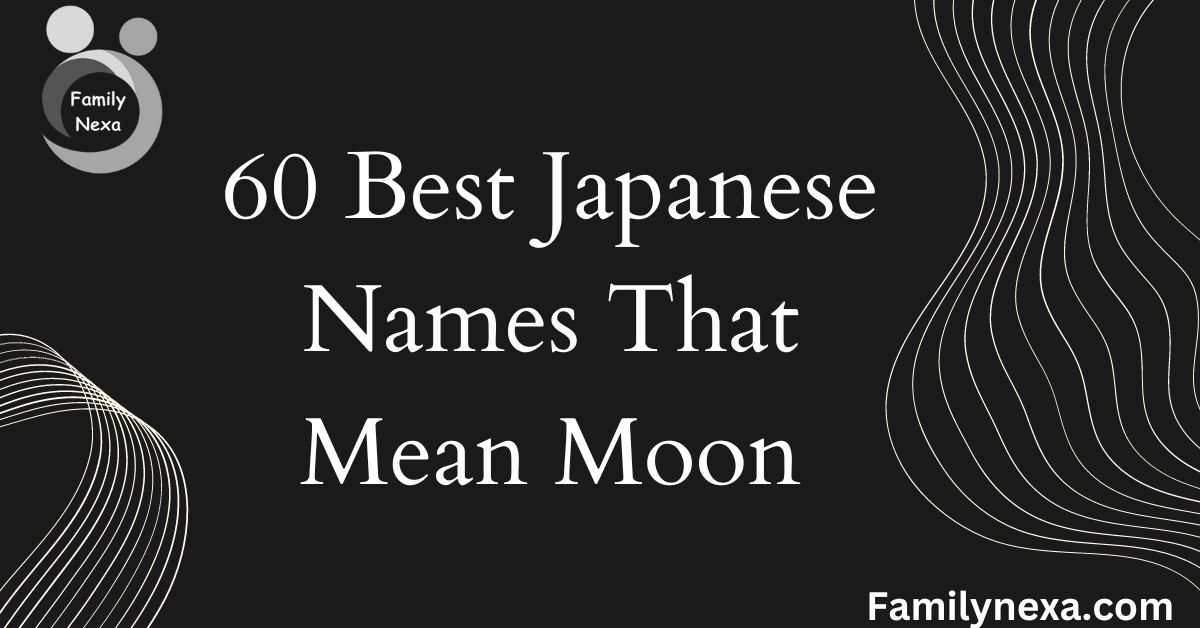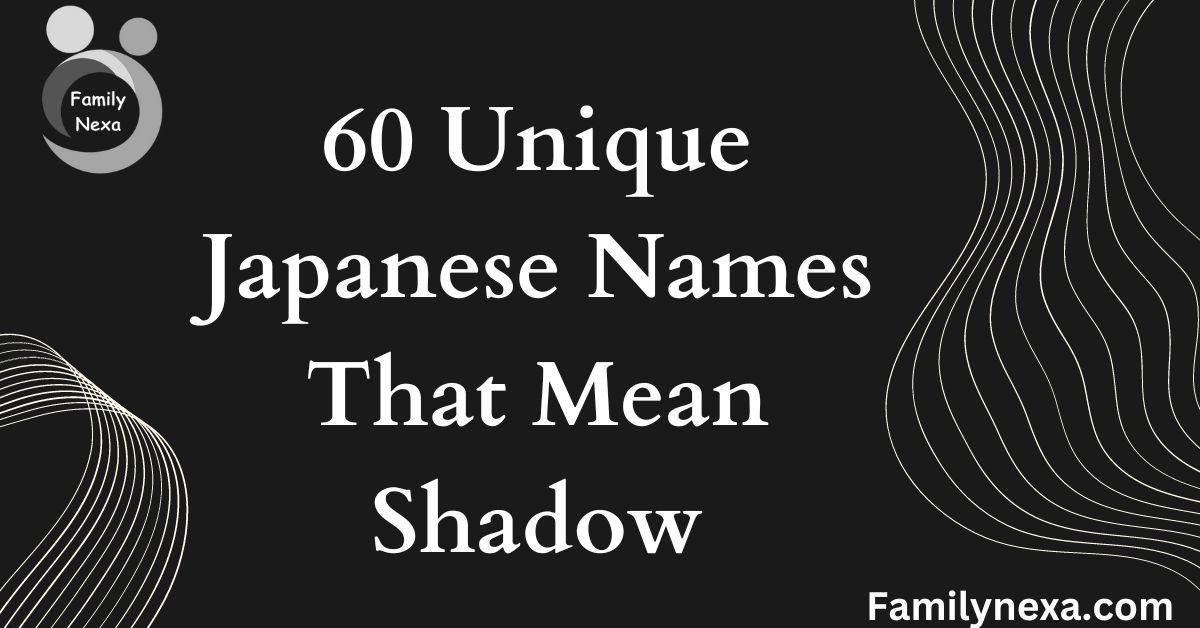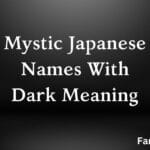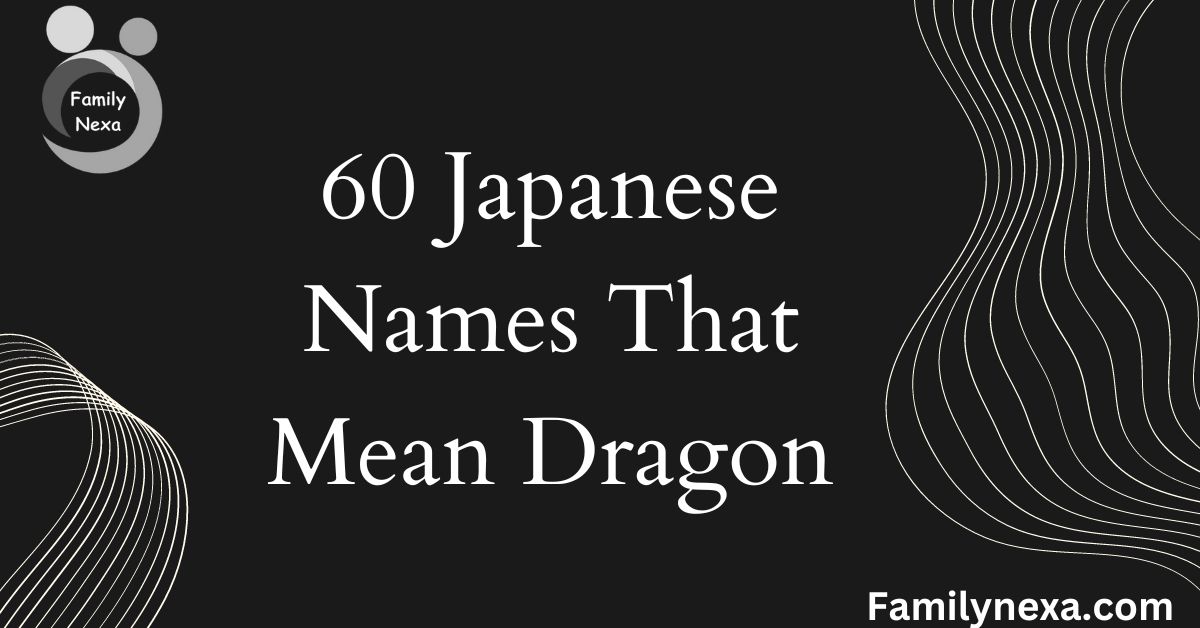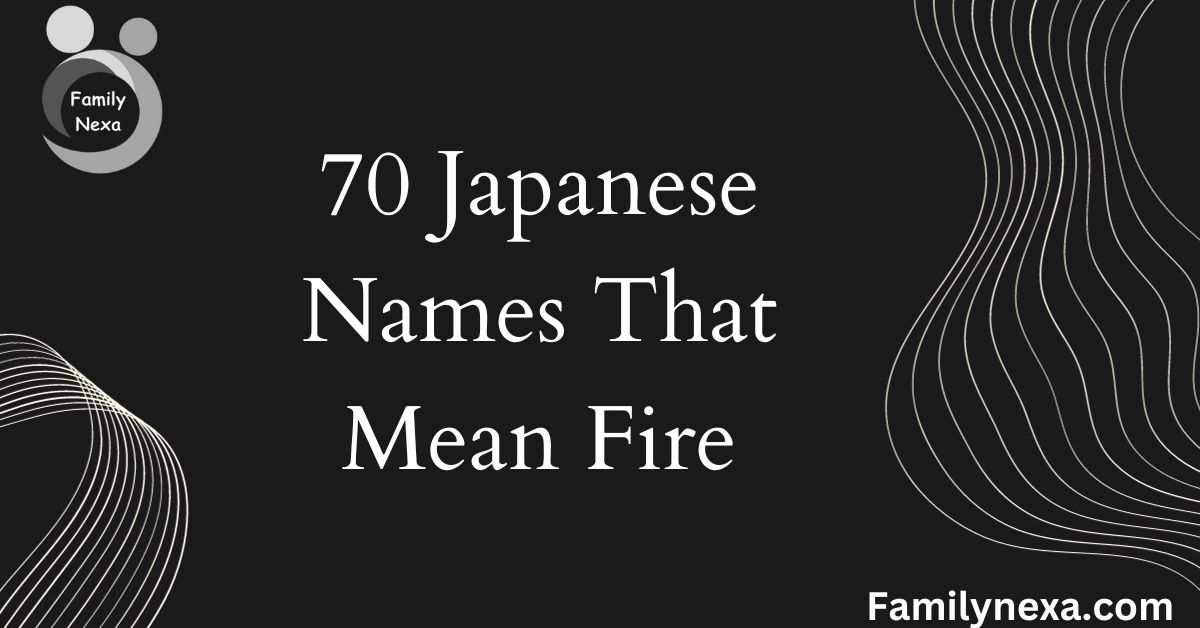The moon holds deep symbolic meaning in Japanese culture. Not surprisingly, many Japanese names contain moon meanings.
For instance, common names like Tsuki and Mayumi literally translate as “moon” and “true beauty of the moon.” Other names evoke moon phases like Mikazuki for crescent moon.
Some Japanese names embed moon meanings more subtly, like Chiyoko meaning “child of a thousand generations” in reference to the moon’s eternal nature.
For parents seeking a name with celestial allure, over 60 best Japanese names that mean moon pulling inspiration from the moon’s light and cycles offer beautiful options. These lyrical names capture the moon’s radiance and connection to the passage of time.
20 Japanese Names That Mean Moon For Girls
1. Tsukiko
- Kanji: (月子)
- Pronunciation: Tsu-kee-ko
- Meaning: A classic name, Tsukiko translates to “moon child.” It reflects a sense of purity and beauty, embodying the serene and gentle qualities associated with the moon.
2. Mizuki
- Kanji: (美月)
- Pronunciation: Mee-zu-kee
- Meaning: Mizuki combines “beautiful” and “moon,” suggesting an ethereal beauty akin to the moon’s soft glow. It conveys grace and elegance.
3. Koharu
- Kanji: (小春)
- Pronunciation: Ko-ha-roo
- Meaning: Although primarily associated with spring, Koharu also implies a connection to the moon. It symbolizes a season of new beginnings and growth.
4. Aya
- Kanji: (彩)
- Pronunciation: A-ya
- Meaning: Aya means “color” or “design,” embodying the idea of the moon as an artist painting the night sky with its soft radiance.
5. Haruka
- Kanji: (遥か)
- Pronunciation: Ha-ru-ka
- Meaning: Haruka signifies “distant” or “far-reaching,” suggesting the moon’s influence and beauty that reaches across the vastness of the night sky.
6. Yuzuki
- Kanji: (夢月)
- Pronunciation: Yu-zu-ki
- Meaning: Yuzuki translates to “dream moon,” reflecting the dreamlike and mysterious aspects often associated with the moon in Japanese culture.
7. Mitsuki
- Kanji: (美月)
- Pronunciation: Mee-tsu-ki
- Meaning: Similar to Mizuki, Mitsuki conveys a sense of beauty associated with the moon. It represents a radiant and attractive presence.
8. Satsuki
- Kanji: (皐月)
- Pronunciation: Sa-tsu-ki
- Meaning: Satsuki is traditionally associated with the month of May but also carries the meaning of “moonlit month,” capturing the moon’s influence on nature.
9. Ayaka
- Kanji: (彩花)
- Pronunciation: A-ya-ka
- Meaning: Ayaka combines “color” and “flower,” symbolizing the vibrant and blooming beauty inspired by the moon.
10. Yuna
- Kanji: (夢菜)
- Pronunciation: Yu-na
- Meaning: Yuna means “dream” and “vegetables,” suggesting a connection between the moon, dreams, and the nourishing aspects of nature.
11. Hikari
- Kanji: (光)
- Pronunciation: Hi-ka-ri
- Meaning: While directly meaning “light,” Hikari also symbolizes the moon’s illuminating presence in the darkness, bringing brightness and hope.
12. Akihiko
- Kanji: (秋彦)
- Pronunciation: A-ki-hi-ko
- Meaning: Akihiko combines “autumn” and “boy,” implying a connection between the changing seasons and the moon’s influence on nature.
13. Natsumi
- Kanji: (夏美)
- Pronunciation: Na-tsu-mi
- Meaning: Natsumi means “summer beauty,” representing the moon’s beauty during warm summer nights.
14. Ruka
- Kanji: (琉夏)
- Pronunciation: Ru-ka
- Meaning: Ruka combines characters for “lapis lazuli” and “summer,” portraying a deep and serene beauty reminiscent of the moon.
15. Kiyomi
- Kanji: (清美)
- Pronunciation: Ki-yo-mi
- Meaning: Kiyomi translates to “pure beauty,” reflecting the moon’s pure and unblemished glow in the night sky.
16. Nozomi
- Kanji: (望月)
- Pronunciation: No-zo-mi
- Meaning: Nozomi means “hopeful moon,” capturing the optimism and inspiration that the moon often brings.
17. Michiru
- Kanji: (満月)
- Pronunciation: Mi-chi-ru
- Meaning: Michiru directly translates to “full moon,” symbolizing completeness and fulfillment.
18. Yuri
- Kanji: (百合)
- Pronunciation: Yu-ri
- Meaning: Yuri means “lily,” and while not directly related to the moon, it conveys a sense of purity and beauty akin to the moon’s radiance.
19. Yumiko
- Kanji: (夢子)
- Pronunciation: Yu-mi-ko
- Meaning: Yumiko combines “dream” and “child,” expressing the mystical and dreamlike qualities often associated with the moon.
20. Natsuki
- Kanji: (夏希)
- Pronunciation: Na-tsu-ki
- Meaning: Natsuki means “summer” and “hope,” reflecting the moon’s influence during warm summer nights and the optimism it inspires.
Don’t miss to read out Mystic Japanese Names With Dark Meaning(Must-See)
20 Japanese Names That Mean Moon For Boys
1. Tsukasa
- Kanji: (司)
- Pronunciation: Tsu-ka-sa
- Meaning: Tsukasa is associated with the moon and translates to “master” or “ruler,” reflecting the moon’s influence and dominance in the night sky.
2. Yoru
- Kanji: (夜)
- Pronunciation: Yo-ru
- Meaning: Yoru simply means “night,” symbolizing the moon’s prominent role during the nighttime and its association with darkness.
3. Kogetsu
- Kanji: (虎月)
- Pronunciation: Ko-get-su
- Meaning: Kogetsu combines “tiger” and “moon,” representing the strength and power associated with the moon in Japanese culture.
4. Sora
- Kanji: (空)
- Pronunciation: So-ra
- Meaning: Sora means “sky” or “heavens,” emphasizing the moon’s celestial and ethereal presence.
5. Raiden
- Kanji: (雷電)
- Pronunciation: Rai-den
- Meaning: Raiden translates to “thunder” and “lightning,” capturing the moon’s connection to natural elements and the night sky.
6. Hikaru
- Kanji: (光)
- Pronunciation: Hi-ka-ru
- Meaning: Hikaru means “light,” symbolizing the moon’s illuminating presence in the dark night.
7. Masaru
- Kanji: (勝)
- Pronunciation: Ma-sa-ru
- Meaning: Masaru translates to “victory” or “win,” reflecting the moon’s triumph over the darkness during the night.
8. Kaname
- Kanji: (要)
- Pronunciation: Ka-na-me
- Meaning: Kaname means “essential” or “pivot,” suggesting the moon’s pivotal role in the balance of nature.
9. Michio
- Kanji: (道夫)
- Pronunciation: Mi-chi-o
- Meaning: Michio combines “path” and “man,” expressing the idea of a man who follows the path illuminated by the moon.
10. Haruki
- Kanji: (春樹)
- Pronunciation: Ha-ru-ki
- Meaning: Haruki combines “spring” and “tree,” symbolizing the moon’s influence on the changing seasons and nature.
11. Satoshi
- Kanji: (聡)
- Pronunciation: Sa-to-shi
- Meaning: Satoshi means “clear-thinking” or “quick-witted,” reflecting the moon’s clarity and brilliance in the night sky.
12. Akihito
- Kanji: (明仁)
- Pronunciation: A-ki-hi-to
- Meaning: Akihito combines “bright” and “virtuous,” embodying the moon’s bright and virtuous influence.
13. Ryuusei
- Kanji: (流星)
- Pronunciation: Ryu-u-sei
- Meaning: Ryuusei means “shooting star,” symbolizing the moon’s connection to the celestial events that captivate the night sky.
14. Kiyoshi
- Kanji: (清)
- Pronunciation: Ki-yo-shi
- Meaning: Kiyoshi translates to “pure” or “clear,” capturing the moon’s pure and unblemished glow.
15. Kazuki
- Kanji: (一希)
- Pronunciation: Ka-zu-ki
- Meaning: Kazuki combines “one” and “hope,” suggesting the moon as a source of solitary hope and inspiration.
16. Haruto
- Kanji: (陽翔)
- Pronunciation: Ha-ru-to
- Meaning: Haruto combines “sunlight” and “soar,” symbolizing the moon’s presence even during daylight hours and its influence on flight.
17. Yuzuru
- Kanji: (譲)
- Pronunciation: Yu-zu-ru
- Meaning: Yuzuru means “to yield” or “to hand over,” signifying the moon’s cyclical nature of waxing and waning.
18. Shinji
- Kanji: (信司)
- Pronunciation: Shin-ji
- Meaning: Shinji combines “trust” and “ruler,” expressing the moon’s role as a trusted and dominant force in the night sky.
19. Takumi
- Kanji: (匠)
- Pronunciation: Ta-ku-mi
- Meaning: Takumi means “artisan” or “master craftsman,” portraying the moon as a masterful creator of the night’s beauty.
20. Hiroshi
- Kanji: (浩)
- Pronunciation: Hi-ro-shi
- Meaning: Hiroshi means “wide” or “prosperous,” symbolizing the moon’s widespread influence and the prosperity it brings to the night.
20 Gender-Neutral Japanese Names That Mean Moon
1. Haruka
- Kanji: (遥)
- Pronunciation: Ha-ru-ka
- Meaning: Haruka is a gender-neutral name that means “distant” or “far-reaching,” capturing the expansive and enduring qualities of the moon.
2. Aoi
- Kanji: (葵)
- Pronunciation: A-o-i
- Meaning: Aoi, meaning “hollyhock,” is associated with the moon and represents the celestial beauty inspired by nature.
3. Kai
- Kanji: (海)
- Pronunciation: Ka-i
- Meaning: Kai, translating to “ocean” or “sea,” symbolizes the vastness and depth reminiscent of the moon’s influence.
4. Ryo
- Kanji: (涼)
- Pronunciation: Ryo
- Meaning: Ryo means “cool” or “refreshing,” reflecting the calming and soothing qualities of the moon.
5. Mika
- Kanji: (美香)
- Pronunciation: Mi-ka
- Meaning: Mika combines “beautiful” and “fragrance,” suggesting a name that embodies the captivating and alluring aspects of the moon.
6. Yuki
- Kanji: (雪)
- Pronunciation: Yu-ki
- Meaning: Yuki, meaning “snow,” symbolizes the moon’s serene and pristine appearance in the night sky.
7. Ren
- Kanji: (蓮)
- Pronunciation: Ren
- Meaning: Ren, associated with the lotus flower, signifies purity and beauty, much like the moon’s glow.
8. Sora
- Kanji: (空)
- Pronunciation: So-ra
- Meaning: Sora means “sky” or “heavens,” emphasizing the moon’s celestial and universal nature.
9. Hana
- Kanji: (花)
- Pronunciation: Ha-na
- Meaning: Hana, translating to “flower,” represents the delicate and blossoming beauty inspired by the moon.
10. Akira
- Kanji: (明)
- Pronunciation: A-ki-ra
- Meaning: Akira means “bright” or “clear,” reflecting the moon’s luminous presence in the night sky.
11. Kazuki
- Kanji: (一希)
- Pronunciation: Ka-zu-ki
- Meaning: Kazuki combines “one” and “hope,” suggesting a name that embodies the solitary yet hopeful nature of the moon.
12. Nozomi
- Kanji: (望)
- Pronunciation: No-zo-mi
- Meaning: Nozomi means “hope” or “wish,” capturing the optimism and inspiration associated with the moon.
13. Sakura
- Kanji: (桜)
- Pronunciation: Sa-ku-ra
- Meaning: Sakura, associated with cherry blossoms, symbolizes the transient yet beautiful nature of the moon’s phases.
14. Kaiyo
- Kanji: (海陽)
- Pronunciation: Ka-i-yo
- Meaning: Kaiyo combines “ocean” and “sun,” suggesting a name that reflects the moon’s influence on tides and the natural world.
15. Yori
- Kanji: (頼)
- Pronunciation: Yo-ri
- Meaning: Yori means “rely” or “trust,” symbolizing the dependable and constant presence of the moon.
16. Renji
- Kanji: (蓮司)
- Pronunciation: Ren-ji
- Meaning: Renji combines “lotus” and “ruler,” expressing the moon’s authoritative and regal influence.
17. Mio
- Kanji: (澪)
- Pronunciation: Mi-o
- Meaning: Mio means “waterway” or “channel,” representing the reflective and fluid qualities of the moon.
18. Aki
- Kanji: (秋)
- Pronunciation: A-ki
- Meaning: Aki, meaning “autumn,” is associated with the moon’s presence during the fall season.
19. Nori
- Kanji: (法)
- Pronunciation: No-ri
- Meaning: Nori means “law” or “principle,” suggesting a name that embodies the guiding and illuminating nature of the moon.
20. Hikaru
- Kanji: (光)
- Pronunciation: Hi-ka-ru
- Meaning: Hikaru, meaning “light,” symbolizes the moon’s illuminating presence in the darkness, suitable for any gender.
FAQs
How do I choose a name in Japanese?
Carefully research name meanings and cultural significance before choosing a Japanese name that fits your purposes.
How do I get a Japanese name?
Consult Japanese language resources or ask a knowledgeable Japanese person to suggest suitable Japanese names based on your background.
Is it OK for non-Japanese to use a Japanese name?
Using a Japanese name is generally acceptable if you have a well-informed appreciation of Japanese culture, but avoid appropriating names.
Is it okay to name your child a Japanese name without being Japanese?
Naming a child should consider your family heritage and meaningful connection to Japanese culture, not just an aesthetic preference, to thoughtfully honor the tradition.
Final Thoughts
The moon’s mystique crosses cultural boundaries, but holds unique symbolism in Japan. Reflecting this, over 60 best Japanese names that mean moon from its glow, cycles and eternity. Whether directly translating as “moon” or evoking its phases and light, these names beautifully capture luna allure.
For parents seeking a name from Japan’s rich tradition, moon-inspired options pedigreed in heritage and poetry abound. The moon weaves an enlightening narrative that rhythms with life’s cadence.
Lunar-defined Japanese names tap into this resonance, their imagery glowing through each child so named. In their grace, these names hint at astrologic influences, fate’s flow, and our common orbit around life’s mysteries. By choosing a moon name, parents give a child a name aglow in celestial harmony.

I am Emma, a skilled writer and SEO expert. With years of experience in both fields, I love writing helpful articles readers love. I also want the articles to show up high on Google.
My goal is to make content that is both interesting and easy to find online.
I work hard to research topics, choose the right words, and organize information clearly.
